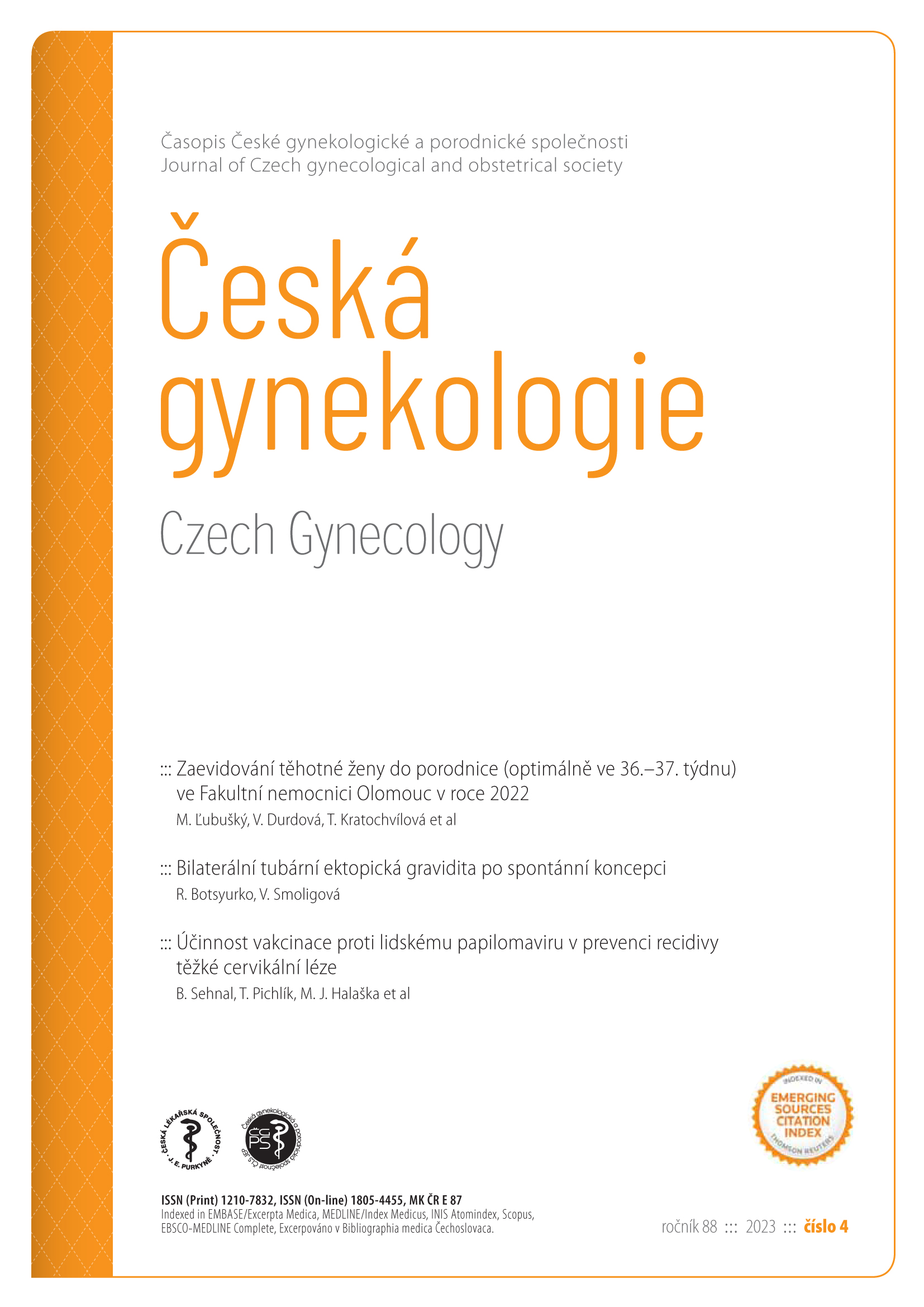Respiratory problems in full term newborns, which parameters are related to the length of in-patient stay?
Klíčová slova:
respiratory, distress, tachypnea, newborn, NICUAbstrakt
Objective: To analyse respiratory problems of full term newborn babies during their first hours of life, compare parameters related to the length of neonatal intensive care unit (NICU) in-patient stay, and discuss perinatal care practices, which could prevent consequences, and/or reduce associated costs of NICU hospitalization. Material and methods: Retrospective chart review between July 31st 2017 and March 2nd 2018 in a tertiary maternity hospital. Chi-square testing analysed qualitative data. Mann-Whitney test was used for quantitative variables. Multiple linear regression models determined odds ratios for associations were found to be significant in univariate analyses. Results: 86 babies with respiratory problems were studied. Delivery mode was vaginal in 11.6% and caesarean section in 88.4% of newborns. About 52.3% of admitted newborns had transient tachypnea and improved relatively quickly. Newborns resuscitated in (P = 0.004) or admitted to the NICU from the delivery room (P = 0.000) displayed greater need for O2 administration. Twenty neonates were intubated; 16 of them were administered surfactant. Infection (P < 0.05), abnormal chest x-ray (P = 0.022), and the severity of respiratory system morbidity (P < 0.05) prolonged neonatal in-patient stay. Respiratory problems (P = 0.003) and intubation (P = 0.032) incurred greater hospitalization costs. Breastfeeding initiation before the 3rd day of life (P = 0.031), and O2 administration for more than 72 h (P = 0.036) were significantly associated with the length of in-patient stay in the multivariate regression analysis. Conclusion: Mandating the presence of a pediatrician in the delivery room would optimize justified direct NICU admissions and reduce the possibility of delayed diagnosis of respiratory distress during rooming-in. NICU in-patient stay in full term neonates should be based on combining diagnostic markers of sepsis, such as procalcitonin or interleukin-6. A specific protocol regarding surfactant administration in intubated full term infants is also necessary. The severity of respiratory system morbidity is not the key determinant of infant feeding. Maternal information regarding infant health and breastfeeding abilities may improve breastfeeding rates.


